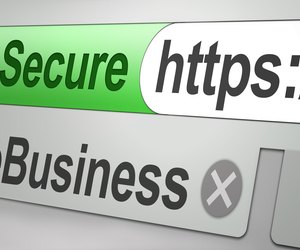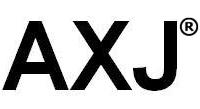AXJ
AXJ, One World in Peace!
Welcome to Actions for Justice ( AXJ ) where we provide our Members with the most updated news and information from around the world 24/7/365. Stay Informed! AXJ is a nonprofit organization. We depend on readers like you to help us do our important work of sharing ideas and knowledge from academia with the public. Your support keeps us going strong. Your Membership and donations will help us reach more people with more research-based journalism. Thank you.
AXJ EXPOSES CHILD ABUSE WORLD WIDE
AXJ EXPOSES CHILD ABUSE WORLD WIDE
|
AXJ Members are mostly composed of parents and grandparents from around the world that have been working on preventing child abuse around. AXJ CANADA apparently is leading the way and has offered us some very important links in that country, and contact information for real professionals you can contact directly regarding any type of child abuse questions and issues you may have.
The objective of course is to end, or at least diminish child abuse, by educating parents and grandparents, and preventing it.
There are many types of child abuse, be it physical, emotional, sexual or psychological, and we must follow the examples of those countries that have best results in preventing it.
WHAT IS CHILD ABUSE?
But what exactly is considered Child Abuse? Let's start with a definition from Wiki.
| Relationships |
|---|
Emotions[show]
|
Abuse[show]
|
| Family law |
|---|
| Marriage and similar status |
| Dissolution of marriage |
| Parent legal |
| Child legal |
| Conflict of laws |
| Related areas |
|
| Caring for children |
|---|
| At home |
| Outside the home |
| Educational settings |
| Institutions and standards |
| Related |
|
Child abuse is the physical, sexual or emotional mistreatment or neglect of a child or children.[1] In the United States, the Centers for Disease Control and Prevention (CDC) and the Department for Children And Families (DCF) define child maltreatment as any act or series of acts of commission or omission by a parent or other caregiver that results in harm, potential for harm, or threat of harm to a child.[2] Child abuse can occur in a child's home, or in the organizations, schools or communities the child interacts with. There are four major categories of child abuse: neglect, physical abuse, psychological or emotional abuse, and sexual abuse.
Different jurisdictions have developed their own definitions of what constitutes child abuse for the purposes of removing a child from his/her family and/or prosecuting a criminal charge. According to the Journal of Child Abuse and Neglect, child abuse is "any recent act or failure to act on the part of a parent or caretaker which results in death, serious physical or emotional harm, sexual abuse or exploitation, an act or failure to act which presents an imminent risk of serious harm"
Source: http://en.wikipedia.org/wiki/Child_abuse
Source: Child Abuse Prevention in Canada: http://www.safekidsbc.ca/
EDUCATION
Many times we here at AXJ hear and receive complaints from parents around the world that in reality there is no formal education for parents on how to bring up their children.
This statement is so true and probably in 90% of all cases children learn by example, not by education. You can tell a child one hundred times no to do something but if they see you as a parent, or any other family member do it, guess what they will eventually turn out doing in life?
This refers to just about anything and everything from waking up in a good and kind mood in the morning, to screaming and bullying others, to domestic violence, hate, vengeance, and not to mention alcohol and drug addictions.
The don't do what I say but do what I do is what is the most effective and best advice that children pick up.
We here at AXJ always recommend young parents to sit down with their parents and grandparents and discuss all issues that have existed in the past between them, and clear the air.
Believe it or not we are all a product and result of how we were brought up.
Remember, a child may listen to your advice once, but they will follow your example as a parent forever.
CULTURAL DIFFERENCES
As a father of 3 and reporter for AXJ have been fortunate enough to have been born and raised in the United States of America ( USA ), been able to live in Europe for 20 years, and been in close contact with many children besides my own. Being of Latin Origin, as the stereotype goes, Latins like to have BIG families, and it is true. My uncle for example has had six ( 6 ) children of his own and my aunt ( 4 ). My grandparents and their grandparents had as many as 13 children, so just imagine.
I am also fortunate enough to say that during my upbringing and in adult life I have never seen any child abuse of any kind within my immediate family nor that I have been in contact with personally. As I have said before, children learn by example, but there are many cultural differences between an Anglo-Saxon Family and a Latin Family. Let me explain just a few.
Latins are very emotional people by nature. They are either in your face 24/7, or talking about you, or worrying about you. Women/mothers run the show and men/fathers watch on the sidelines. There are exceptions to the rule like Ricky Martin for example.
I can tell you for a fact my Father in Law from Spain, now in his 70,s, loves children and loves to be a grandfather, but doesn't even wash a dish in the home. This is the case with my father too. My mother and mother-in-law do absolutely everything, from get up in the morning bright and early to go shopping, do the cooking, clean the house, set the table, serve the meals, clean after everyone, and raise the children. And they still have energy left at the end of the day. They exhaust me and I just sit on the sidelines and watch them.
That being said, my mother-in-laws's last child was a boy. The "baby" of the house is now 35 and still living at home, does that say anything?
Anglo women/mothers tend to be more practical. My sister-in-law, who I love very much, is Anglo. She may not do the cooking, but she taught her 2 kids to clean after themselves, and start thinking about moving out at 18. Just thinking, they are still living at home. My brother does a lot of things around the house and the kitchen is not as off limits to him as it is for me, but then again I am married to a Latin women.
Anglos seem to be more strict at home with the education of their children, but then again that may just be stereotypes. I think all cultures are loving of their children, some are just more permissive than others. Grandparents always spoil their grandchildren but that is normal.
Now how about the meals and food? Children in Spain, and most Latin Countries, are brought up on coffee with milk and cookies, while those in Anglo countries tend to have a larger breakfast with orange juice, cereal, eggs and ham, but this is changing. According to nutritionists I have been reading they recommend a good full hearty meal for breakfast, especially for children.
In Latin cultures the big meal is in the middle of the day, while in the Anglo countries dinner is more important, in general.
Alcohol consumption, this seems to be a big issue between cultures. In Latin countries children are brought up drinking wine and beer at a much younger age while in Anglo countries many cannot drink legally until they are 21 years of age.
What age is considered too young, well I have seen small children get a little wine and beer dipped in their pacifier in Spain. But normally by 16 they have wine or a beer with meals. A glass no more.
DIVORCE
Now when it comes to divorce this tends to be dramatic in all countries and cultures and an issue that family Courts have had a difficult time dealing with and handling correctly.
Most countries tend to favour making decisions on the principal of the "best interest of the child" but forget the most important part, the children. Children need to grow up with both parents and both sides of their families in their lives.
Only in very few and far between situations should children be separated from one parent or the other.
Recently, we have heard of many high profile divorces where the children are used as the ante or prize to fight for, and unfortunately custody in the majority of countries and cultures around the world is given exclusively to the mother, but is this in the "best interest of the child?"
Historically and culturally it has been accepted that the mother is the better parent but this is not necessarily true. In a perfect world this type of gender discrimination before the Law is unconstitutional and should not exist, since fathers can be just as good parents as mothers.
AXJ Members tend to favour that joint custody and equal parenting time for both parents is in reality in the "best interest of the child" whenever possible.
ORGANIZATIONS
Again we quote Wiki:
There are organizations at national, state, and county levels in the United States that provide community leadership in preventing child abuse and neglect. The National Alliance of Children's Trust Funds and Prevent Child Abuse America are two national organizations with member organizations at the state level.
Many investigations into child abuse are handled on the local level by Child Advocacy Centers. Started over 25 years ago at what is now known as the National Children's Advocacy Center[105] in Huntsville, Alabama by District Attorney Robert "Bud" Cramer these multi-disciplinary teams have met to coordinate their efforts so that cases of child abuse can be investigated quickly and efficiently, ultimately reducing trauma to the child and garnering better convictions.[106][107] These Child Advocacy Centers (known as CACs) have standards set by the National Children's Alliance.[108]
Other organizations focus on specific prevention strategies. The National Center on Shaken Baby Syndrome focuses its efforts on the specific issue of preventing child abuse that is manifested as shaken baby syndrome. Mandated reporter training is a program used to prevent ongoing child abuse.
NICHD, also known as the National Institute of Child Health & Human Development is a broad organization, but helps victims of child abuse through one of its branches. Through the Child Development and Behavior (CDB) Branch, NICHD raises awareness efforts by supporting research projects to better understand the short- and long-term impacts of child abuse and neglect. They provide programs and observe National Child Abuse Prevention Month every April since 1984. The Children’s Bureau leads activities for the Month, including the release of updated statistics about child abuse and neglect, candlelight vigils, and fundraisers to support prevention activities and treatment for victims. The Bureau also sponsors a “Blue Ribbon Campaign,” in which people wear blue ribbons in memory of children who have died from abuse, or in honor of individuals and organizations that have taken important steps to prevent child abuse and neglect
Sponsors
AXJ NEWS
© 2025 Created by AXJ USA.
Powered by
![]()
Badges | Report an Issue | Privacy Policy | Terms of Service










 BECOME A RESELLER AND MAKE $$$ NOW!
BECOME A RESELLER AND MAKE $$$ NOW!




 <\/a>
<\/a> 

You need to be a member of AXJ to add comments!
Join AXJ